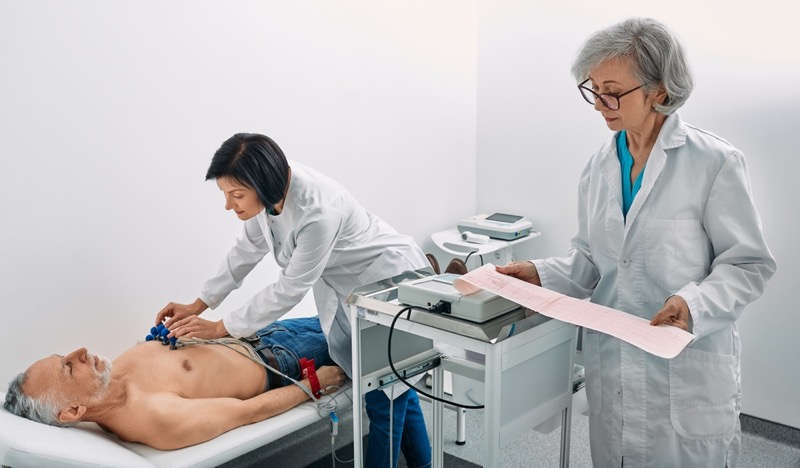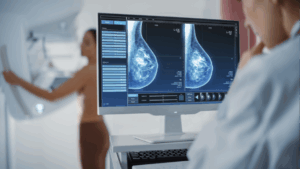The heart plays a crucial role in pumping blood throughout the body, ensuring the delivery of oxygen and nutrients to various organs. However, certain conditions, such as heart blockages, can hinder this vital process and pose significant health risks. Diagnosing heart blockages early is essential for timely intervention and effective treatment.
In this article, we will explore whether a chest X-ray can reveal heart blockages and the alternative methods available for heart blockage detection.
Importance of Diagnosing Heart Blockage
Heart blockages, also known as coronary artery blockages, occur when the blood vessels supplying the heart muscles with oxygen and nutrients become narrowed or blocked. This condition can lead to serious complications, including heart attacks and other cardiovascular issues. Early detection and management are crucial in preventing severe consequences and improving patient outcomes.
What are heart blockages?
Heart blockages are typically caused by the buildup of plaque inside the coronary arteries, a process known as atherosclerosis. This buildup restricts blood flow to the heart, reducing its ability to function correctly. As the condition progresses, patients may experience chest pain, shortness of breath, and fatigue, indicating the need for a thorough medical examination.
The Role of Chest X-Rays in Medical Examinations
Chest X-rays are valuable diagnostic tools used to visualize the structures inside the chest, including the heart and lungs. While they are essential in identifying lung diseases and some cardiac abnormalities, they have limitations when it comes to directly visualizing heart blockages. A chest X-ray for heart issues can provide valuable information about the heart’s size, shape, and position, but it cannot directly show blockages within the coronary arteries.
Can a chest X-ray detect or show heart blockages?
Can X-rays show heart problems or heart blockage? Does chest X-ray show heart blockage? While a chest X-ray cannot directly show heart blockages, it can indirectly provide vital clues about a patient’s cardiac health.
Enlarged heart chambers, fluid buildup around the heart, and other abnormalities visible on a chest X-ray may prompt further cardiac evaluation, including tests like coronary angiography, if heart blockages are suspected.
Can an X-ray show a heart attack?
No, an X-ray cannot directly show a heart attack. X-rays are primarily used to visualize bones and certain tissues, but they are not effective in directly visualizing the heart’s internal structures or blood flow. There are no heart attack X-rays. A heart attack occurs when there is a sudden blockage of blood flow to the heart muscle due to a coronary artery blockage.

Other Diagnostic Tools for Heart Blockage Assessment
To complement the information obtained from a chest X-ray, medical professionals may utilize other diagnostic methods to assess heart blockages accurately. Some of these include:
Electrocardiogram (ECG)
An ECG records the heart’s electrical activity and helps identify irregular heart rhythms and other cardiac abnormalities.
Echocardiogram
An echocardiogram uses sound waves to create images of the heart’s structures, providing valuable information about its function and detecting any abnormalities.
Cardiac Stress Test
This test evaluates the heart’s performance under stress, such as during exercise, and can help detect insufficient blood flow to the heart muscle.
Coronary Angiography
Considered the gold standard for diagnosing heart blockages, coronary angiography involves injecting a contrast dye into the coronary arteries and taking X-ray images to identify any blockages or narrowing.
Alternative Methods for Heart Blockage Detection
Apart from coronary angiography, other imaging techniques like computed tomography angiography (CTA) and magnetic resonance imaging (MRI) can be employed to assess coronary arteries’ condition and detect blockages non-invasively.

How to Seek Help for Heart Blockage Concerns
If you suspect heart blockage or experience symptoms like chest pain, shortness of breath, or unexplained fatigue, One Step Diagnostic is here to provide immediate assistance. Follow this process to seek help for heart blockage concerns:
Step 1: Visit Our Radiology Center or Call for Urgent Appointment
For prompt evaluation, visit our state-of-the-art, American College of Radiology (ACR) accredited radiology center or call us for an urgent appointment. We understand the urgency of cardiac concerns and prioritize your well-being.
Step 2: Comprehensive Assessment by Expert Radiologists
Our experienced radiologists will conduct a comprehensive evaluation, starting with a physical examination and review of your medical history. This information helps in providing a tailored diagnostic plan.
Step 3: Advanced Chest X-ray Imaging
Our cutting-edge chest X-ray imaging will capture detailed images of your heart and chest. While a chest X-ray alone may not directly detect heart blockages, it serves as a crucial initial step to assess cardiac health.
Step 4: Additional Diagnostic Tests, if Needed
Based on the chest X-ray findings and your symptoms, our radiologists may recommend additional diagnostic tests like an electrocardiogram (ECG), echocardiogram, stress test, or coronary angiography to further investigate heart blockage concerns.
Step 5: Prompt Communication and Consultation
Once the results are available, we ensure prompt communication with you and your healthcare provider. If heart blockages are confirmed, our team can assist in developing a comprehensive treatment plan.
Step 6: Compassionate Care and Ongoing Support
At One Step Diagnostic, we prioritize compassionate care and provide ongoing support throughout your journey. Our team is committed to your heart health and well-being.

Putting Your Heart Health First: Seek Timely Help for Heart Blockage Concerns
Although a chest X-ray alone cannot directly visualize heart blockages, it remains a valuable tool in the initial assessment of cardiac health. For accurate diagnosis and management of heart blockages, additional tests such as ECG, echocardiogram, stress test, and coronary angiography are essential. Early detection and prompt medical attention can significantly improve outcomes for individuals with heart blockage concerns, enhancing their overall quality of life and reducing the risk of serious cardiovascular events.
Visit One Step Diagnostic today for efficient heart blockage evaluation. Our advanced facility, experienced radiologists, and prompt response ensure a seamless experience. Trust our compassionate care and cutting-edge technology for accurate results. Your heart health is our priority. Contact us for more information.




